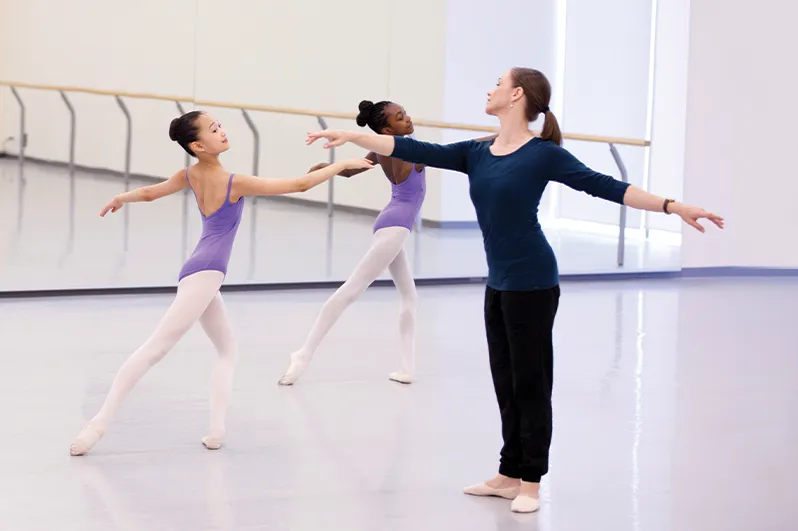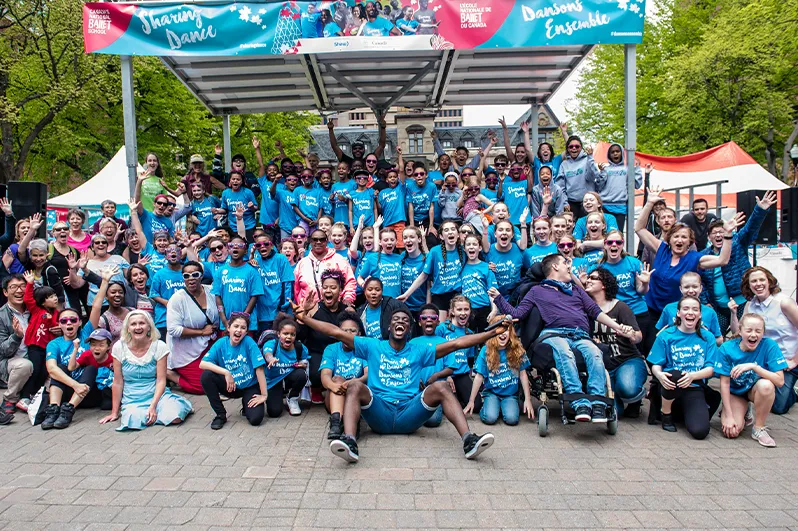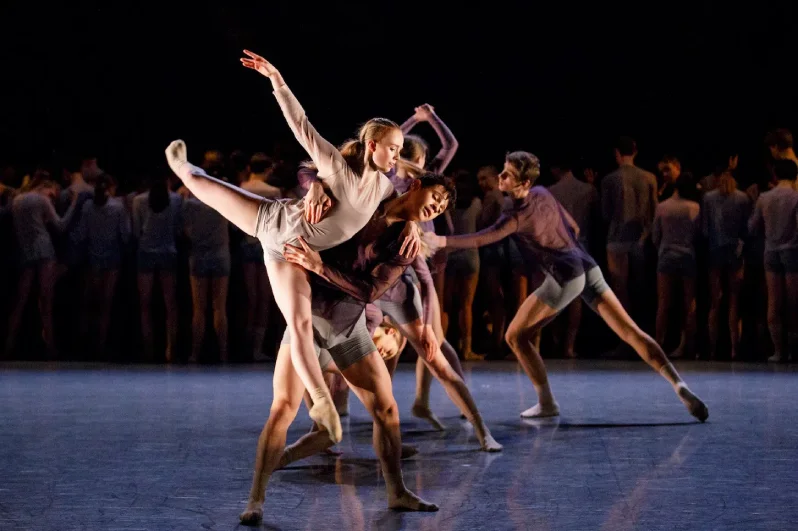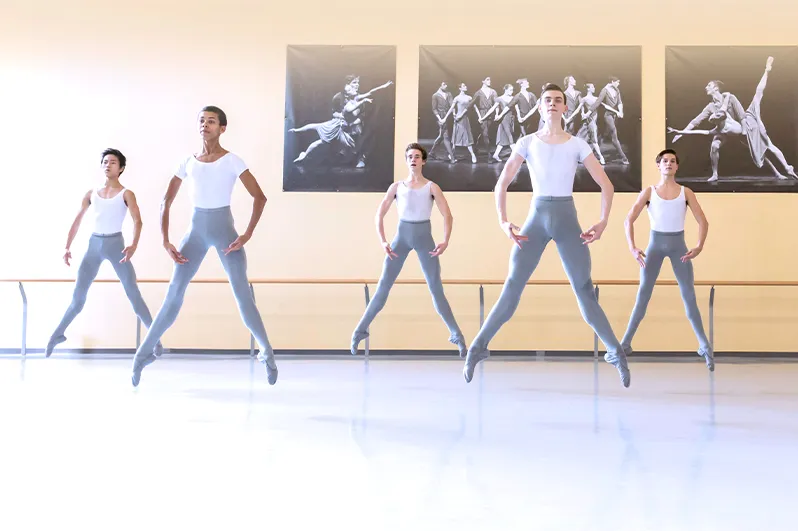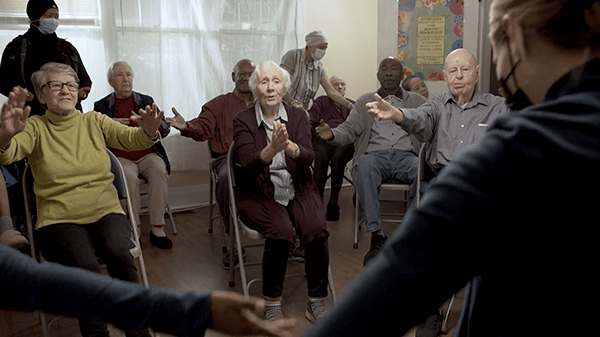An Interview with "Dancer Not Dementia" filmmaker Anthony Grani
Filmmaker Anthony Grani, is the director and editor of Dancer Not Dementia, a new short film presented by Canada's National Ballet School. Dancer Not Dementia captures the extraordinary experiences of dancers living with dementia and their carers and encourages viewers to reimagine their perception of dementia and discover the vibrant communities challenging dementia-related stigma through dance. The impact of dance is seen through the eyes of the residents and staff of Alexis Lodge Dementia Care Residence and Cedarhurst Dementia Care Home, and through experts in the health and arts spaces. Join Grani as he shares his experience working on the project, what it was like filming at the two care homes, memorable moments from the filming process, and more.
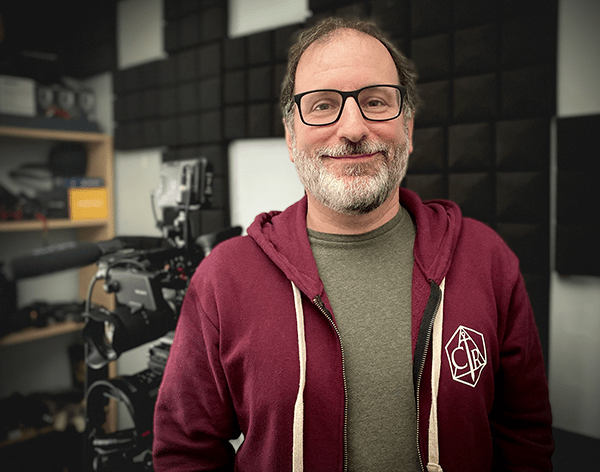
Having worked on this film and other projects that have engaged people living with dementia, what conversations do you hope are sparked through Dancer Not Dementia?
I hope this film can help people be a little less frightened of dementia. Certainly less frightened of interacting with folks living with dementia, and maybe even less frightened of getting it themselves. As the people in the film say, dementia does not erase who you are as a person. It doesn’t mean you’re not alive anymore. People living with dementia still have the capacity to be creative and experience joy. And we see that first hand through the folks dancing with us in the dementia care facilities. That’s the kind of stuff I hope people talk about after this film.
Can you share what it was like filming at both the Alexis Lodge Dementia Care Residence and the Cedarhurst Dementia Care Home?
One of the best things about being a filmmaker is getting access to places and worlds that you wouldn’t normally see. When I used to work on big Hollywood films, I’d get to see soundstages transformed into magical worlds, visit giant mansions and secret subway tunnels. Then when I moved into making documentaries, I still got to see places I wouldn’t normally see and do things I wouldn’t normally do, but I also got to talk to people I wouldn’t have met otherwise. And not only talk to them, but ask them questions. What a gift. Every film I make, I get to learn.
Alexis Lodge and Cedarhurst Dementia Care Home presented two new places to experience each with many interesting people with stories to tell. Both places were incredibly kind and accommodating to our small crew. As much as we try to stay out of the way, filming is always intrusive, and the staff and residents were always understanding and helpful. It was heartening to see how much the staff cared about and for the residents - and how that was reciprocated by the residents. The morning dance classes taught by Megan, Ashleigh and Cherise were always the highlight of the day. It was clear to see how much fun everyone was having. Then the afternoons were for interviews where I got to learn about the folks who live there and the folks who look after them. I finished each day inspired by the people I’d spoken to and the stories they told. It is always an enormous privilege for someone to allow you into their lives and give you their time and energy. Even more so when they let you into their homes. That’s not something I ever take lightly and I need to thank Alexis Lodge and Cedarhurst for welcoming us with open arms.
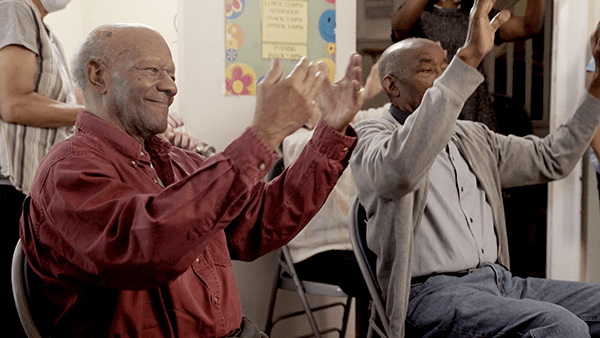
Can you share what inspired you to start your not-for-profit film company Reciprocity Media Collective and what your experience has been like creating media for other non-profits and charities?
I’ve always tried to give back and help out when I can. That often takes the form of me helping to create content for people or organisations who are trying to do some good in the world and don’t have the skills or resources to do it themselves. For years I would volunteer a day here and a day there when I had time in between other projects. I loved doing it because it felt good to help. Then one day when I’d just finished helping a local charity make a campaign video, I started to think about how I could make this the main thing I did instead of the thing I squeezed in a few days a year. And Reciprocity Media Collective was born.
Almost right from the beginning the requests for our services started coming in, and I’ve been extremely fortunate to have created projects for York University, University of Waterloo, University Health Network, Toronto Rehab Institute, Alzheimer’s Society of Canada, Partnerships in Dementia Care, Canadian Institutes of Health Research, The LivingRoom Community Art Studio, The Durham Rape Crisis Centre, Possible Arts, and The Dotsa Bitove Wellness Academy - and now of course, Canada’s National Ballet School!
But the best part of it is that all those projects have a purpose beyond just entertaining. Don’t get me wrong, they’re still entertaining I hope, but they are more than that. They are projects that educate, projects that enlighten, and projects that aim to make positive change.
Making films is great. Making films that make change is even better.
You have worked on other short films and documentaries in the past, was there something unique about the making of Dancer Not Dementia that stuck out to you?
Working with people living with dementia is always unique. As a filmmaker, before you get to the filming part it is always important to plan, plan, and then plan some more. Even in documentaries it is important to go in with an outline and structure of what you need to get and how and when you hope to get it. Sometimes even a loose sort of script. If I’m doing a historical documentary, I find a historian to talk about a specific thing, I do my research, write my questions, and I know generally what the historian is going to say and how it’s going to fit into the film before I’ve even met them in person. But when you work with people living with dementia, that all goes out the window in the most wonderful way. Everything is freer and more in the moment. It always keeps things fresh and makes filming days far more exciting. If I want to talk about dance with someone living with dementia, they may want to talk about dance, but they may also want to talk about basketball, or a childhood pet, or designing industrial control panels. So we just talk about whatever they feel like talking about. And sometimes I get things I can use in the film, and sometimes I just have a lovely conversation with an interesting person. Either way it’s a win for me.
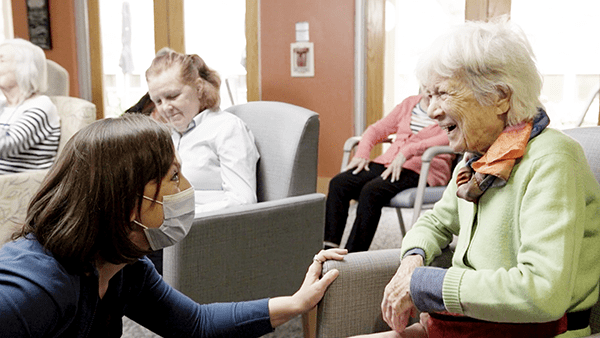
Is there a part of the film that really resonated with you?
The overall message of acceptance and the recognition that folks living with dementia have the same desire and ability to connect and create as anyone else definitely resonates with me. It is vitally important and always good to be reminded to imagine people complexly and not simply reduce them to a diagnosis. So that’s a message I’m always happy to give and receive. But my favourite part of the film is the interview with one of the dancers, Illuminada, when she says that when she can do the dance like the other people, she feels the same as them and loses her inferiority complex. And that perfectly echoes what I said above. She feels the same as everybody else. And no matter what sort of difficulties she may have with memory loss and everything that comes along with it, she is the same as everybody else. Then right after she says that, there’s a lovely shot of her in a dance class and a beautiful smile shines through. It’s very subtle, as she is someone that didn’t show a lot of expression during the classes. But after spending time at Alexis Lodge over multiple days and classes, I got to know everyone a little bit and to me that smile is huge. And I have to say that even though through the editing process I’ve seen that moment easily over a hundred times, I still tear up a bit every time I see it.
Did you have any preconceptions about people living with dementia and if so, did that change after the filmmaking process?
I’ve been fortunate enough to make a few films about people living with dementia, so coming into this one I didn’t really have any preconceived notions. But before I made my first film in the world of dementia, I had loads of them. All informed by the stigma that permeates western society. All of them wrong. Expecting to not be able to connect with anyone. Worried that they would just be empty shells. It feels absolutely terrible to remember that I once thought that way, but before that first film I had never (knowingly) interacted with anyone living with dementia and I bought into all the cultural stereotypes. But on the bright side, it only took about 5 minutes on my first day on that first film to realise how wrong I truly was. And in the ensuing years, I’ve met so many wonderful folks, had amazing conversations, laughed, cried, played games, made art, played music, and now of course danced with them. I am so thankful to have had so many opportunities to learn how wrong I was. And I hope that this film can help de-stigmatize dementia so that more people don’t spend their lives as wrong headed as I used to be.

